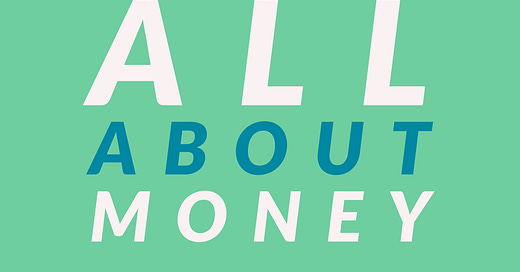Many fintech companies offer products for holding and often earning interest on your cash. These accounts share a lot of the same features as bank accounts, including checking capabilities, interest, debit cards, ATM access and FDIC insurance. They have many names, including cash management accounts, cash reserve, checking, savings or sometimes just cash.
Let’s just call them cash management accounts. These fintechs are often forward-thinking in terms of features and user experience. But importantly, they are not banks.
Most cash management accounts are perfectly safe. The biggest providers that come to mind are robo-advisors like Betterment and Wealthfront. Even more traditional financial institutions like Fidelity and Vanguard offer similar accounts now.
But not all are created equal. Some have even proven dangerous despite the promised FDIC coverage. Before you choose to stick a meaningful amount of money into these accounts, you should probably consider some of the risks that come with them.
Why Use a Cash Management Account?
The main reason you’d want to choose a cash management account over a savings account is to earn above-average yield compared to even many online banks. For example, Discover currently pays 3.6% on savings while Betterment pays 4%.
Another reason is the convenience of keeping all your money under one roof. This potentially means you can keep your emergency fund and your checking account in the same place as your Roth IRA and taxable brokerage.
Most importantly, despite not being bank accounts, cash management accounts offer FDIC insurance through partner banks. Your money is swept into several partner banks, which allows them to offer much higher FDIC coverage than a bank. Banks offer $250,000 of insurance per account holder per account category. Many cash management accounts offer $2 million to $8 million in coverage due to the number of banks your money is spread across, with at least $250,000 per bank. This doesn’t have much importance for most people, who will never have that much cash. And even if you did, keeping that much in cash is never a smart idea when other investments exist.
The Downsides of Cash Management Accounts
The FDIC insurance on cash management accounts makes them almost as safe as a bank. I say almost because there are some fintech companies offering cash products with FDIC coverage that have nevertheless led to customer losses. This had nothing to do with the FDIC coverage failing, but rather the indirect way this coverage is set up through financial intermediaries.
I wrote last year about the collapse of Synapse, a company providing intermediary services between federally insured banks and fintech apps like Yotta. Even though Yotta customers were promised that their funds were covered by FDIC insurance, that didn’t save them. Synapse went bankrupt and shut off the partner bank’s access to transaction data. This wasn’t an FDIC issue, so federal regulators were powerless to step in.
The lesson is that just because an account advertises FDIC coverage doesn’t mean some part of the delicate arrangement can’t break down. It’s usually best to use a real bank rather than a bank-like product. This is particularly important for smaller, lesser-known fintechs, which also have a gamified element to them.
Most cash management accounts, especially the big players, are probably perfectly safe. I would trust companies like Betterment, Wealthfront, Fidelity and Vanguard over those with little to no name recognition.
There may be other downsides to cash management accounts, like less customer support or a lack of ATM and check access. It really depends on what you’re looking for.
The Best Cash Management Accounts
I already mentioned the big four cash management providers I would trust my money with, mostly because they are large, reputable institutions with a lot to lose if a mishap like Synapse were to happen.
Here’s a list of their offerings and some key features:
4% APY
$2 million in FDIC insurance ($4 million for joint accounts)
4% APY
$8 million in FDIC insurance
Debit card
3.65% APY
$1.25 million in FDIC insurance
No debit card but direct deposit and bill pay features
Access to Vanguard money market fund as an alternative to FDIC option
4. Fidelity Cash Management Account
2.21% for FDIC-insured option
$5 million in FDIC insurance
3.94% for Fidelity Government Money Market Fund option
Debit card
ATM fee reimbursement
I’m sure there are other cash management accounts that are probably safe, but these are the ones that I’m familiar with and don’t raise red flags like Yotta. There’s no gimmick to them. They are serious companies offering straightforward products.
I still feel more comfortable with a real bank rather than a bank-like product, but if you find some convenience in having all your accounts in one place, want a little bit higher yield or have some reason to keep large amounts of cash, go ahead and use one of these accounts.



